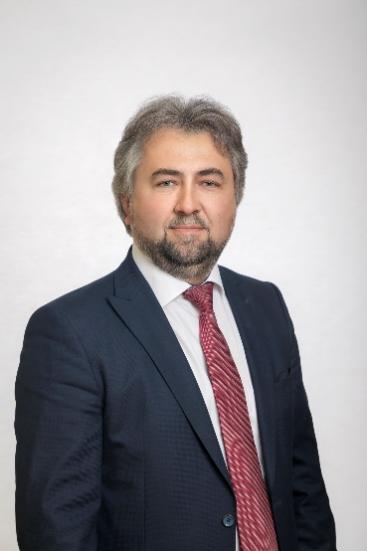报告人:Prof. Mikhail Zheludkevich & Dr. Sviatlana Lamaka
报告时间:11月7日14:00
报告地点:先进制造大楼103会议室
Active learning approach towards discovery of new efficient corrosion inhibitors
Prof. Mikhail Zheludkevich
Institute of Surface Science, Helmholtz-Zentrum Hereon, Geesthacht, Germany
Abstract
Organic corrosion inhibitors, whether added to protective coatings or directly to corrosive environments, play a crucial role in various active corrosion protection strategies. However, the quest for effective corrosion inhibitors within the vast chemical space remains a difficult challenge. Over the past decades, countless research papers have documented the inhibitory effects of individual compounds on various metals across diverse corrosive conditions, creating an infinite narrative.
Fortunately, recent advancements in machine learning (ML) techniques offer promising avenues for narrowing down the search and identifying potential candidates more efficiently. This work highlights the potential of computer-assisted methods in rapidly screening large numbers of organic compounds as potential corrosion inhibitors for magnesium (Mg) and aluminum (Al) alloys. Our approach involves developing quantitative structure-property relationship (QSPR) models using ML algorithms, specifically support vector regression and kernel ridge regression. These models learn from existing data and generalize to predict the behavior of new compounds.
The ML models leverage molecular descriptors derived from geometry and density functional theory calculations of organic compounds. Notably, two systematic approaches for sparse feature selection, identifying molecular descriptors most relevant to the corrosion inhibition efficiency of chemical compounds were proposed. This framework outperforms predictions based on randomly selected descriptors. To further enhance prediction quality, an active learning approach has been implemented. Experimental results from newly predicted modulators were incorporated into extended training data sets, iteratively improving model accuracy over time.
In summary, ML-driven approaches hold great promise for accelerating the discovery of corrosion inhibitors. By harnessing computational tools, researchers can efficiently explore the vast chemical space and make informed decisions on selection of corrosion inhibitors for specific applications.
Biography
Prof. Mikhail Zheludkevich currently serves as the Director of the Institute of Surface Science at Helmholtz-Zentrum Hereon, Germany. Additionally, he holds a full professorship at the University of Kiel. His research interests revolve around electrochemistry, multi-functional surfaces, and the active protection of lightweight materials and multi-material systems.
In 2002, Prof. Zheludkevich earned his PhD in Physical Chemistry from the Belarusian State University, specializing in the interaction of atomic gases with metallic surfaces. Following a decade of diverse roles at the University of Aveiro, ranging from post-doctoral researcher to group leader, he joined Helmholtz Zentrum Geesthacht as the head of the Corrosion and Surface Technology Department. In 2021, he established the Institute of Surface Science, a position he continues to lead.
Prof. Zheludkevich’s contributions have garnered recognition, including the Cavallaro Medal from European Federation of Corrosion in 2024, Tajima Prize from the International Society of Electrochemistry in 2016 and the distinction of Person of the Year 2023 by the International Mg Society. Furthermore, he serves as the chairman of the Aerospace Working Party at the European Federation of Corrosion.

High-throughput and in silico exploration of corrosion inhibitorson the example of magnesium alloys
Dr. Sviatlana Lamaka
Institute of Surface Science, Helmholtz-Zentrum Hereon, Geesthacht, Germany
Abstract
Rapid development of AI and data driven machine learning methods combined with expansion of high-throughput experimental protocols supported by automation and robotics leads to paradigm shifting changes in scientific developments. With this in mind, the lecture will provide an overview of the latest developments in the corrosion inhibition field. A newly released corrosion inhibitor database incorporating over 2400 individual compounds for a variety of metallic substrates will be demonstrated. The importance of scientific data sharing will be highlighted, following the best practices for uniform data reporting makes data sharing more efficient. On the example of magnesium alloys, experimental and computational screening of corrosion inhibitors will be presented. These methods provide versatile and reliable data to train quantitative structure-property relationship (QSPR) models.
The overview will be given of high-throughput experimental methods, including robotic data acquisition and recently developed techniques of image recognition. The pitfalls of this new approach have been uncovered by topographic and classical volume loss validation. Now, large experimental database for magnesium AZ31 will be presented, composed of over 230 individual compounds, all tested at identical experimental conditions. Three different approaches for quantification of inhibition efficiency will be compared in terms of linearity of the values of diverse datasets. The extensive experimental database serves as input to train QSPR models, employing machine learning and other AI algorithms. The models then predict effective corrosion inhibitors among hitherto untested potent commercially available compounds which are experimentally validated.
Biography
Dr. Sviatlana Lamaka is currently the Head of Department of “Electrochemistry and Big Data” at Institute of Surface Science of Helmholtz Zentrum Hereon in Germany. Her field of research is corrosion science, with emphasis on mechanistic understanding of light metal degradation for combating it or benefiting from it when it comes to aqueous Mg-air and secondary Zn-ion batteries or in vitro degradation of bioresorbable Mg-, Zn- and Fe-based implants. Dr. Lamaka is actively involved in high-throughput robotic and in silico screening of corrosion inhibitors, understanding their inhibition mechanisms and compatibility with protective or conversion coatings; localized electrochemical techniques for corrosion research and modelling; understanding (micro)galvanic and atmospheric corrosion and accelerated corrosion testing.
Dr. Lamaka attained her PhD in Analytical Chemistry in 2002, in Minsk, Belarus and dived into corrosion problems at the University of Aveiro and University of Lisbon in Portugal from 2005, before moving to Germany in 2015. Dr. Sviatlana Lamaka co-authored over 160 peer-reviewed publications, patents and book chapters that found interests among the peers with over 10000 citations and yielding an h index of 55. She coordinated several European, national and bilateral projects with multiple academic and industrial partners and enjoys continuous collaboration with international colleagues across the globe.






